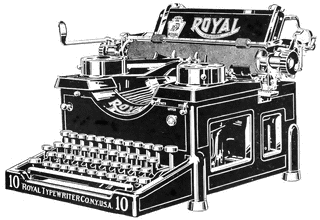As an art-form, we’re pretty behind the times. Yes, we’ve got projections, digital sound, LED lighting systems, a digital enhancement for everything that people can do on a stage. But what about in business, getting the word out there, creating community?
Why is it so hard to find a recorded version of that show you did last year? How come there are no streaming clips online? Why can’t the latest broadway shows be on TV every few weeks? Where are the iPhone apps with video trailers of all the latest shows playing in town?
Well, there are rules against some of those and unwillingness against others. Both have to do with this silly idea we have that theatre can only be experienced now, in the moment, you have to be there, personal connection.
Don’t get me wrong, that immediacy and power of the here and now is why I do theatre.
But we can’t expect people to know how and why it’s special to us if we let our efforts go unnoticed or become inaccessible.
 Let’s go back in time for a moment. Around 1910 the typewriter was standardized and production of this device would be huge for the better part of the 20th century. To some it signaled the beginning of a more productive future. To others it heralded the death of handwriting forever.
Let’s go back in time for a moment. Around 1910 the typewriter was standardized and production of this device would be huge for the better part of the 20th century. To some it signaled the beginning of a more productive future. To others it heralded the death of handwriting forever.
August 26, 1939: The first Major League Baseball game was televised. “But wait”, said some mangers, “If people can just turn on a TV set and watch from the comfort of their homes, why would they ever want to come all they way out and buy a ticket for a live game? We’re ruined!” Nine years later, TVs were in millions of homes in America, MLB televised nearly every game, and game attendance had increased to a record high!
Fast forward to 2007. Legally Blonde: The Musical is on Broadway and needs more of an audience if it’s going to succeed. Some crazy people thought it would be a good idea to have it filmed and broadcast on TV… while it was still running on Broadway. First time that had ever happened. “But wait”, said some producers, “If people can just turn on a TV set and watch from the comfort of their homes, why would they ever want to come all they way out and buy a ticket for a live show? We’re ruined!” Well they went through with the broadcast. Guess how ticket sales did?
It’s now 2011. People are still writing things by hand, I can even find calligraphy art sets at my local bookstore. Every game in the Major League Baseball is televised with millions of people watching and game attendance is as popular as ever. Legally Blonde fans saw the broadcast several times which increased interest in the show as well as ticket sales. But where is all the media on my local theatre scene?
We need to get over our fears of giving our product away via modern technology. The internet and youtube won’t replace live theatre any more than the typewriter replaced handwriting. And as we can see from baseball, broadcasting the live event INCREASED interest for the sport (Sorry for the repetition, but I really want this point to sink in). I see no good reason to stop other theatre producers from wanting to go down the Legally Blonde route.
The roadblocks now present themselves. First is Actor’s Equity: they’ve got rules against broadcasting performance. Authors and publishers of plays also have issues with any significant portion of their work being freely available. But again, history has shown us that increased exposure generates increased interest.
I think we should put the pressure on and start to demand broadcast rights. Maybe not through major channels like MTV in the steps of Legally Blonde, but why not do a live web stream of rehearsals? How about putting 10 minutes of your current show on YouTube? Anything to increase exposure.
If you’ve got non-union actors and an unpublished play… stream it, send it, give it away for free. Content is advertising, and it will pay off when the paying customers come in.